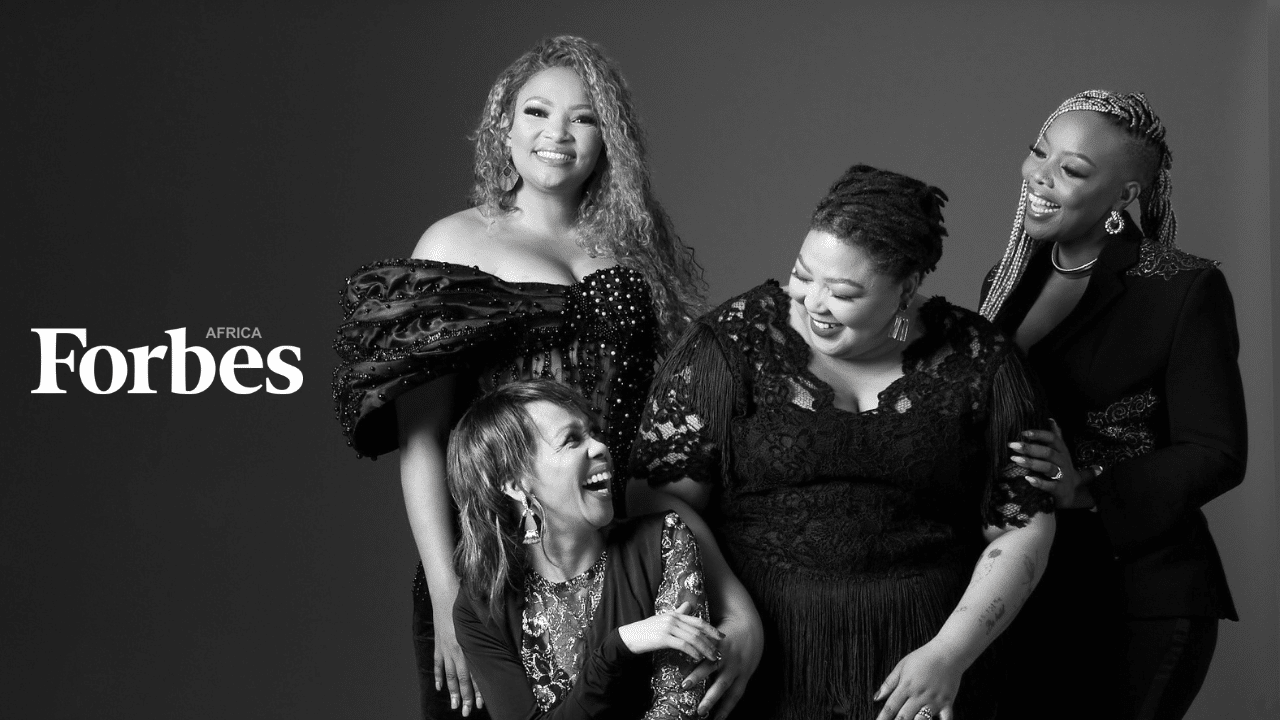We have featured Under 30s and Over 50s but for the first time, FORBES AFRICA profiles women excelling in their 30s and 40s. From musicians and actors to business leaders and tech entrepreneurs, we shine the light on a small cross-section of trailblazers, disruptors and decision-makers in Africa in this demographic writing their story and owning it.
Story curated by Chanel Retief and Nicole Pillay
Art Direction: Lucy Nkosi
Photography: Katlego Mokubyane ; Assistant: Sbusiso Sigidi
Styling: Deneal Van Wyk; Outfits supplied by Fashimo Styles Studio, Ukara, Suited For Her and Preview Accessories
Hair & Makeup:Vanessa Unamaca, MakoleMade
Location: NewKatz.Studio, Johannesburg
The woman who digs her heels in, knows who she is and where she’s going, having already lived through more than three decades battling the odds and earning her stripes, is not to be messed with. She is an embodiment of how resilience can meet repertoire, creativity can marry innovation and money can match might. Given her trials and trajectories, she is not in it to wing it, but to win it.
Thought leader Avivah Wittenberg-Cox says that a woman’s career can be highlighted in phases. In her 2020 Forbes opinion piece titled 4 Phases Of Women’s Careers – Coping With The Crisis And The 30s Wittenberg-Cox writes that this is “a decade of learning, exploring, growth, independence, and no dependents”.
When a woman is in her 20s, it’s all about ambition. In her 30s, she tends to experience what Wittenberg-Cox calls a culture shock, “where potential and parenting crash into today’s corporate cultures and systems”. The 40s are then dedicated to (re)acceleration centered around refocusing career priorities on the foundations built. And then finally, a woman’s 50s focuses on self-actualization. This is “when empty nesters discover (often to their surprise) their peak career decades”, Wittenberg-Cox explains.
Loading...
FORBES AFRICA has previously listed visionaries under 30 and pioneering women over 50. But in between those age groups, as we found, is an ocean of talent populated by women who have already tasted success and are forging ahead and also those who are discovering their true potential to become high-achievers in the third and fourth decades of their lives.
How have they managed to break the glass ceiling for remarkable change in sectors across Africa and beyond? They are also leaders who have had to use their time to evolve, spearhead and pivot the way they think about business, branding and their own personal lives in search of the elusive ‘work-life balance’.
“I’m so fantastically happy that FORBES AFRICA is [featuring] the missing middle,” South African actor, television personality, businesswoman, accountant and human rights activist, Nomzamo Mbatha says. “I think there are so many people who hit their biggest targets, accomplish their biggest goals [during this time]… I’m glad that we’re in it because I get to see women who are in their 30s and 40s and they are just owning their power. And I’m inspired by that; just seeing a woman who stands in her power.”
It is not an uncommon fact that women are generally underrepresented, or invisible, in the upper echelons of power on the continent.
“At a personal level, I’m very vocal about the fact that when I leave one day, there are more female CEOs in this organization.” – Mpumi Madisa
The PricewaterhouseCoopers (PwC) Executive Directors Practices and Remuneration Trends Report 2023 shows that women only make up 15.6% of executive directors among Johannesburg Stock Exchange (JSE) Top 200 companies. This includes Chief Executive Officers (CEOs) and Chief Financial Officers (CFOs).
As a JSE-listed company, Bidvest, for the first time, has a female CEO, Mpumi Madisa.
“I guess when you’re the first, what you do is you give other people a semblance that they can also be there,” Madisa tells FORBES AFRICA. “Because generally, we don’t see people who look like us at the C-suite and CEO level. You don’t see enough women, you don’t see enough people of color, and you don’t see enough young women. So, I suppose being the first kind of says, ‘yes, we can, it is possible’. I think it puts a significant amount of responsibility on the incumbent also to make it work and to do it well. And then it also [places] a lot of responsibility [on you] to make sure that there are more who look like you who come up in the C-suite. At a personal level, I’m very vocal about the fact that when I leave one day, there are more female CEOs in this organization.”
It is widely reported that across industries, women face obstacles that hinder their career progression. This could result in a disproportionate number of men occupying top positions. There is a global estimate that less than a third of leadership positions are held by women, this according to a report by the LinkedIn Economic Graph. In media, the situation is no better, particularly in the entertainment world. Dr Martha Lauzen, Executive Director of the Center for the Study of Women in Television and Film at San Diego State University, noted in her 2021/22 study that at about the “age of 40, female characters begin to disappear in substantial numbers from both broadcast and streaming programs”.
Behind the scenes, women are still vastly underrepresented and highly under-celebrated, particularly in director roles.
“I think it would be a fair statement because when you do something before you’re 30, people think it’s absolutely incredible,” says Kate Kallot, founder and CEO of Amini. “I became a director before the age of 30… but I feel like I have more maturity now than I had when I was under 30. There is some learning I have that pushed me to build Amini… I have a different view of life than when I was under 30. I think [women in their 30s and 40s] are underrepresented and undercelebrated. But I think we should continuously celebrate women when they achieve something no matter the age, to be honest.”
The women featured in our unranked, first-ever Under 30 Over 50 List have no interest in being hyped as power women or role models, even when they are. This has allowed them time to focus purely on their passion, which, for the most part, is giving back to the African continent. And although they all agree that they are now at their most confident, this is also a time for introspection; for rethinking careers, family obligations, their endeavors, relationships and personal lives.
“That’s one of the most popular questions people ask me – how do I find a balance between my personal life and growth in my career,” says Siba Mtongana, South African celebrity chef and television presenter. “And for me, personally, when I met my husband many years ago, I told him how many kids I wanted, what kind of life I’d like and I asked, ‘can you handle that?’ And he said ‘of course, I can’. I think from that we were able to form a union of understanding earlier on that I wanted both: I want to have a family and I want to have a career.”
In celebrating the strength, resilience and unparalleled achievements of these women, it’s important to note that they only represent a small subset of women stepping into their power in this age group on the continent. It is abundantly clear that while their journeys diverge, the unifying thread in this narrative is their undeniable power and potential to create a new discourse of development on the continent. They think in multiples, not believing in the singular success story.
Mpumi Madisa – South Africa, 44
CEO, Bidvest Group
Industry: Business
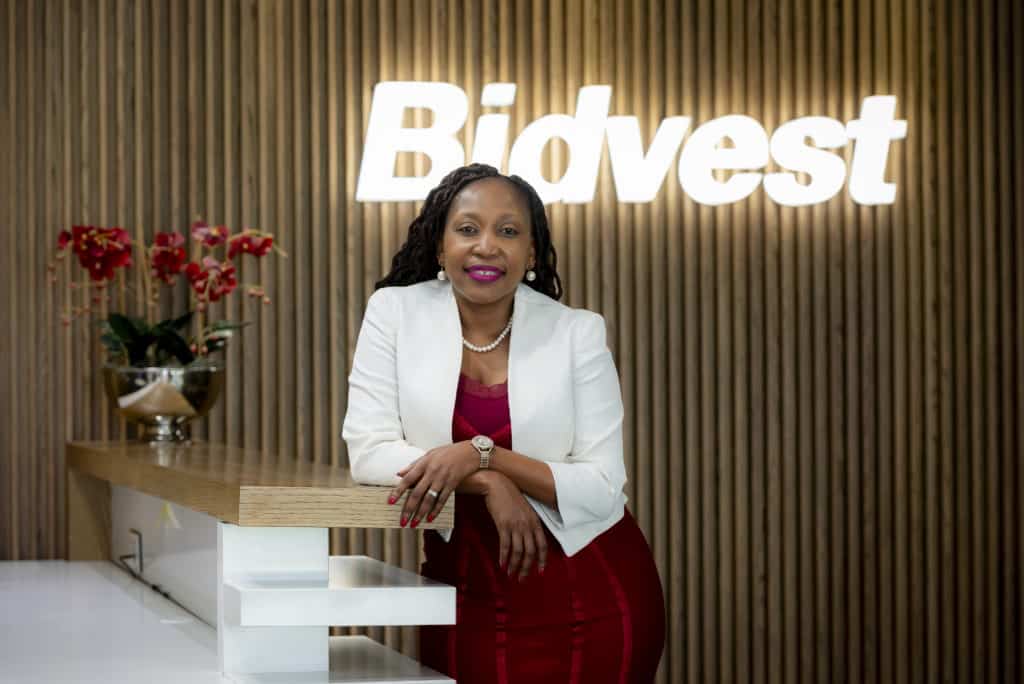
“I always say that in the work environment, you will come across people who are smarter than you; you will always come across people who are more qualified than you. You will come across people who’ve got more experience than you. But no one can outwork you, if you work hard.… So, fundamentally, I think hard work is at the base of success.”
Fresh off her appearance on Forbes’ 2023 list of The World’s Most Powerful Women, Bidvest Group CEO, Nompumelelo (Mpumi) Thembekile Madisa continues to leave her mark as a force in business on the continent. Having been at Bidvest for just over 18 years but in the position of CEO since 2020, Madisa says that her “sticking it out and staying” has allowed her to build on her success.
“I think people do tend to sometimes jump around a lot,” Madisa says. “And when you jump around from one organization to another, you kind of lose your ability to build a track record. And, also, a track record of your success, because then once you’re kind of all over the place, you don’t get to build the track record within one organization. I definitely think that sticking it out and staying in the organization for long is a good decision I made.”
Upon her appointment to the position at the South African services, trading and distribution group in 2020, she became the first black female chief executive of a top 40 company on the Johannesburg Stock Exchange (JSE). Although this idea of being “the first” is something one should celebrate, Madisa believes that there is a big responsibility that comes with that.
As a big proponent of diversity, she believes the more diverse the space, the more pace you create for changes to occur.
“I think it’s important for us to not just celebrate [women who are successful], but really just talk about the things that we need to start getting right so that we make sure that the women that we do appoint and those who follow also are actually super successful and leave a strong legacy, and leave behind organizations that no longer need to be watched in terms of transformation,” Madisa adds.
“But that transformation is really inculcated in how that organization thinks and lives and breathes. I’m a person who, in general, loves diversity. I am a firm believer that the more diverse your team is, the most successful it will be.”
Kate Kallot – Kenya, 33
Founder and CEO, Amini
Industry: Technology
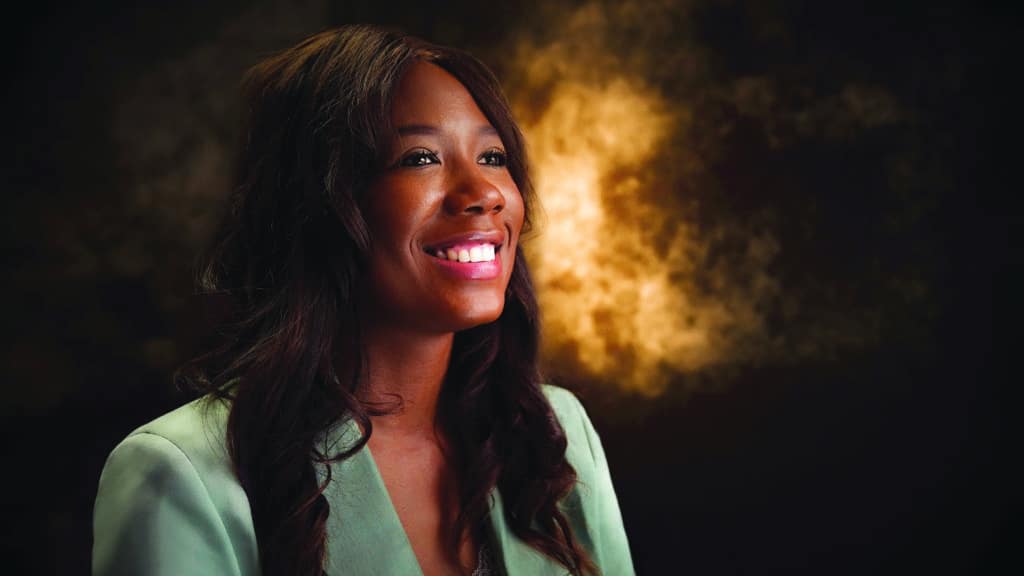
“No matter what we face or how hard it is, we know that we’re not doing this for ourselves. We’re doing this for an entire continent and generations to come.”
Ready to board her flight out of Davos, where she has been attending the 2024 World Economic Forum, Kate Kallot reflects on what it means to be “a power woman”.
“I feel we are all power women, to be honest,” Kallot says. “My mom raised me and my sister by herself. She’s a power woman; she was a single mom. And the kids did, I think, reasonably well,” she says with a chuckle.
Artificial intelligence (AI) has led the conversation in many industries for the past decade. Kallot has played a role, solving Africa’s data scarcity by building its environmental data infrastructure.
“As we all know, the tech industry still has a long way to go when it comes to representation – the representation of women, but also the representation of Africans,” Kallot adds. “One of the things that’s preventing our industry to actually make any progression on that front is probably the fact that they do not have any pathways that encourage African kids and African girls to actually get into tech.”
With just over a decade’s experience in leading AI innovation at global tech companies, Kallot founded Amini, a Nairobi-based startup that leverages satellite imaging and AI to gather and analyze environmental data comprehensively. This provides insights into ground-level occurrences with remarkable precision, right down to the square meter.
“I always knew in my heart that I wanted to use everything I had learned in deep tech in the United States and the United Kingdom and apply it to the continent. I tried to do this in big tech. But obviously, for a lot of these companies, Africa was never a priority. I decided to move to Kenya and try to build something that I could use because I’m a strong believer that technology is an enabler, and can enable Africa to rise up.”
Dr Catherine Nakalembe – Uganda, 40+
Professor at the University of Maryland (USA), Africa Program Director under NASA Harvest and a member of the NASA SERVIR Applied Sciences Team
Industry: Science
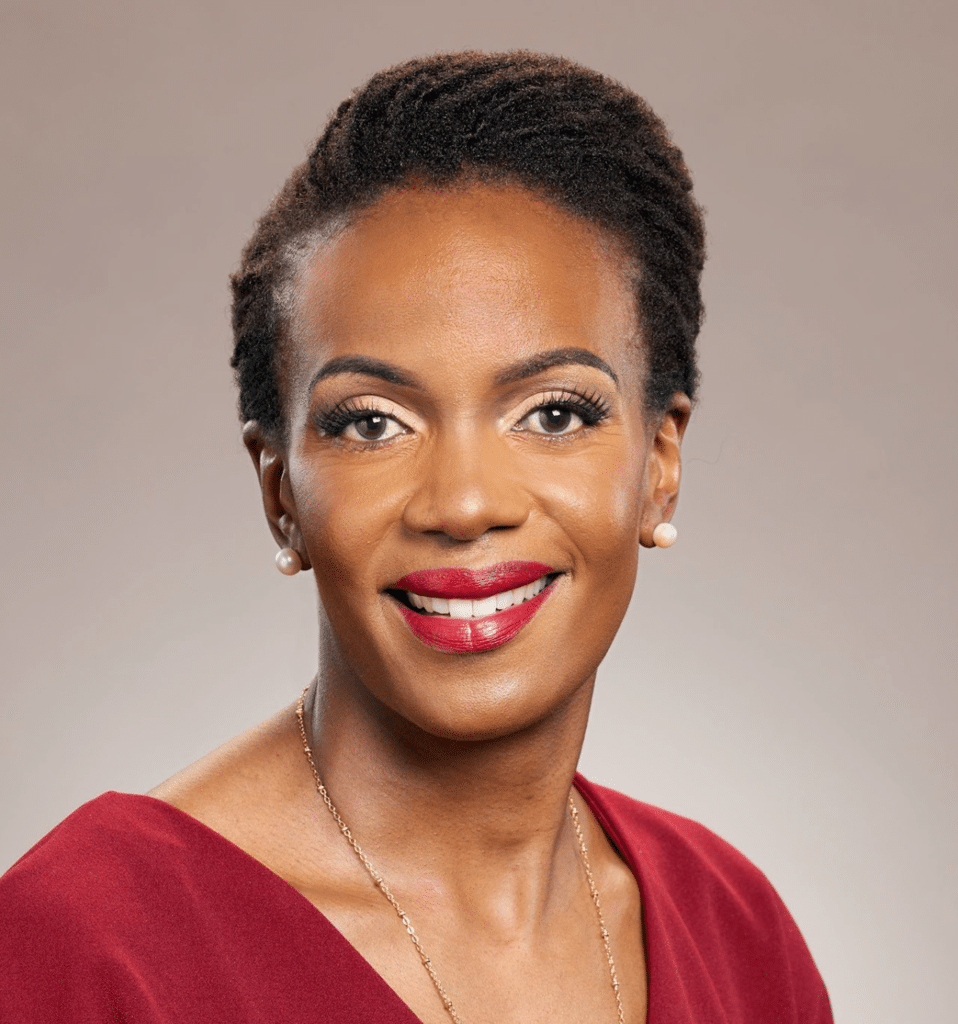
An assistant professor at the University of Maryland, in the Department of Geographical Sciences, Dr Catherine Nakalembe is making her mark on science, and on Africa, every day. Not only is she the NASA Harvest Africa Lead, Nakalembe is also a member of the NASA SERVIR Applied Sciences Team and serves as the Agriculture and Food Security Thematic Lead.
Her work is centered around machine learning and satellite remote sensing which, according to her website, is “to conduct groundbreaking research and develop applications aimed at advancing agriculture, supporting food security initiative, mapping land use, facilitating humanitarian aid, and enhancing climate resilience with a focus on Africa”.
The importance of this work is further emphasized by stats from the 2023 Africa Agriculture Status Report, which states that 650 million Africans, or roughly 50% of the continent’s population, lack economic or physical access to sufficient food. This alone may be reason enough to celebrate and encourage women in science, just like Dr Nakalembe.
Dr Aisha Pandor – South Africa, 39
Co-Founder, SweepSouth & Pandora Biosciences, and Venture Partner, E4E Africa
Industry: Technology
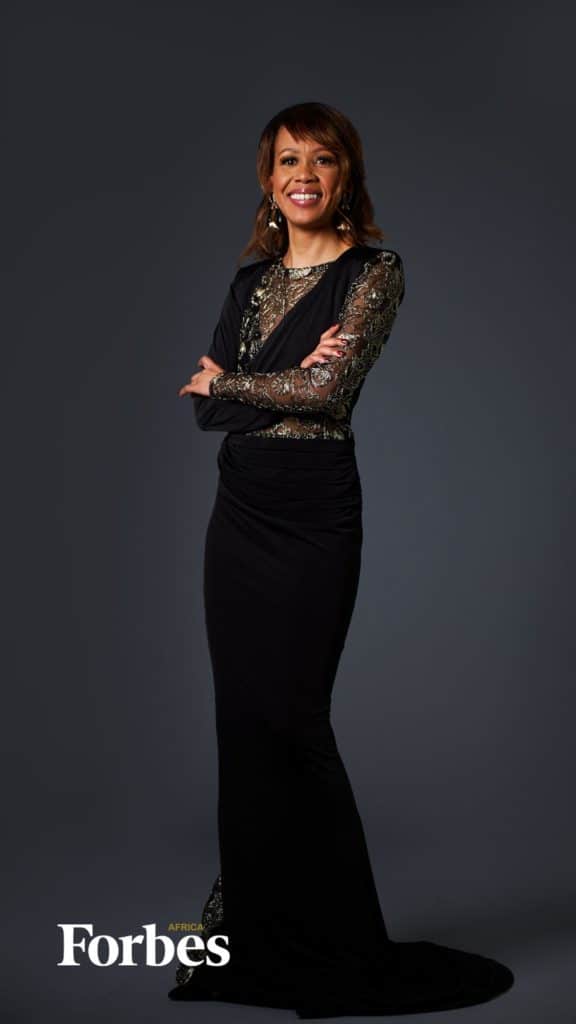
“Being a power woman means living out your purpose and searching for work and for a life that is aligned with your purpose.”
It’s the need of the times that most entrepreneurs pivot in their approach to building businesses. This has become quite normalized in the tech space. Traditionalists see risks but not Dr Aisha Pandor, whose main goal has always been about building businesses that help those around her and help her plough back into her country’s economy.
Pandor, a human geneticist, started SweepSouth, an online home cleaning and gardening services platform, with her husband, software engineer Alen Ribic, in 2014. The idea came about when she had just left her corporate career. While they were reviewing different business ideas, the couple realized that they needed help, at the time.
“That sparked the idea that there are services like Lyft and Uber, but there’s nothing that helps to connect you to home services, using technology,” Pandor says.
Almost a decade later, Pandor walks in for the photoshoot at the NewKatz.Studio in Johannesburg, South Africa, ready to announce that she has stepped down as CEO of the online platform.
“One of the great things about being a scientist is that when you’re building, you measure your impact as you’re going along, you do it in a data-driven way.”
“Now, I’m thinking about work-life balance. And so, I think it’s important to also showcase this phase in [a] woman’s career,” Pandor adds, stating that she will not be leaving SweepSouth permanently but will rather focus more on building a business centered around health, health technology and genetics. “This is often the time when you’re having children or your children are old enough that you start thinking about the time that you spend with them. I think this notion of not needing to find the perfect balance, but being able to hold lots of spaces at the same time – that is really what being a power woman is about. It’s not about perfection. It’s about constantly trying.”
Nomzamo Mbatha – South Africa, 33
Actor, Television personality and Philanthropist
Industry: Entertainment / Social Impact
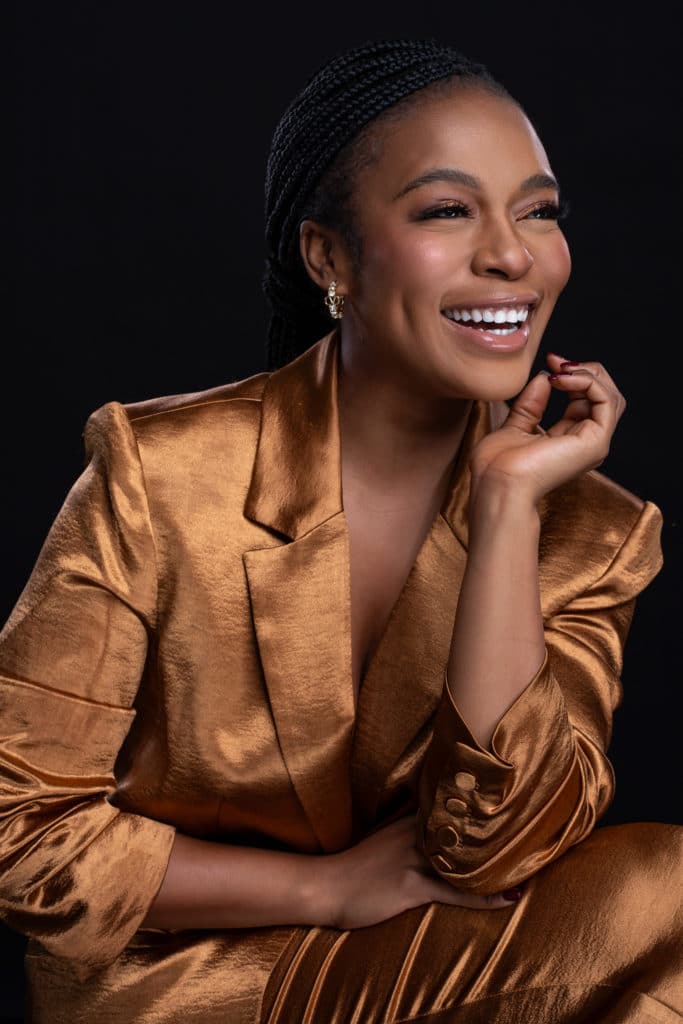
“What makes me not give up? I want to live long enough to see the summit of my life. I don’t think life was designed to be easy. I don’t think life and, and its occurrences and happenings, were designed to be easy. I think we are supposed to experience challenges. The true test of human will is how you overcome that.”
Nomzamo Mbatha is at a restaurant in Geneva, Switzerland, smiling brighter than the winter sun as she connects over Zoom for this interview in January. The actor apologizes for being slightly late but enthuses: “We just received news that at the school that we are renovating and building in KwaMashu (township in South Africa) – our Matric [students] received a 100% pass rate.”
She cannot contain her excitement and joy, revealing the passion for her work as an activist and philanthropist.
“Being a ‘power woman’ is being able to stand up for something greater than myself,” Mbatha later speaks about what defines her. “Also, it was easier because I grew up in a neighborhood that was so exposed to crime and lack of opportunities. Siyabonga Nomvethe (former South African soccer player) was the guy in the neighborhood who motivated us as young kids that there’s a world beyond us. He gave us the permission to imagine. And for me, that’s what I’m in the business of, outside of being in the business of self-belief, I’m in the business of giving the permission to imagine, because I don’t believe in being the single success story.”
Mbatha first rose to fame in 2013 as the main character in the South African soap opera, Isibaya. From there, her star shone both locally and abroad, appearing in movies like Coming to America 2, and starring in and serving as an Executive producer on Shaka iLembe in South Africa. Mbatha explains that the pan-African experience is important to her, which is why she is selective about the projects she signs.
“For so long, our narrative as African people has always belonged to everybody else. And when I say everybody else, I mean the West. The thing about Africa is that we’re not only rich in our natural resources, we are rich in our people too. I am very clear I want to be able to make content that is going to be proudly African, content that positions and grows our creative economy so that we can continue to show the world that we are viable.”
Juliana Rotich – Kenya, 47
Co-founder, BRCK
Industry: Technology
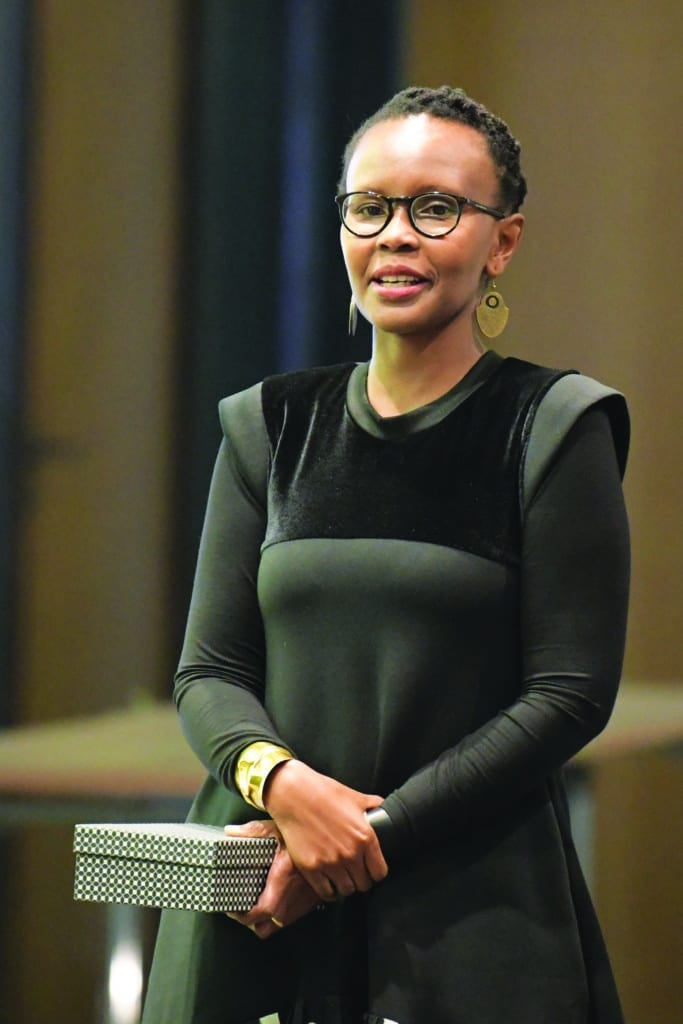
In the booming and constantly-evolving world of fintech, BRCK co-founder Juliana Rotich has found her passion, and her home. After co-founding the company, which aims to build reliable internet routers as well as software and communications equipment, in 2013, she has gone on to become the Head of Fintech Integration Solutions at massive telecommunications provider, Safaricom.
An acclaimed ‘techpreneur’, she has often been quoted in the media as working towards finding tech-based solutions to challenges that affect society as well as empowering Africa’s underserved communities.
Siba Mtongana – South Africa, 39
Chef, Food expert, Author and Entrepreneur
Industry: Culinary/Food
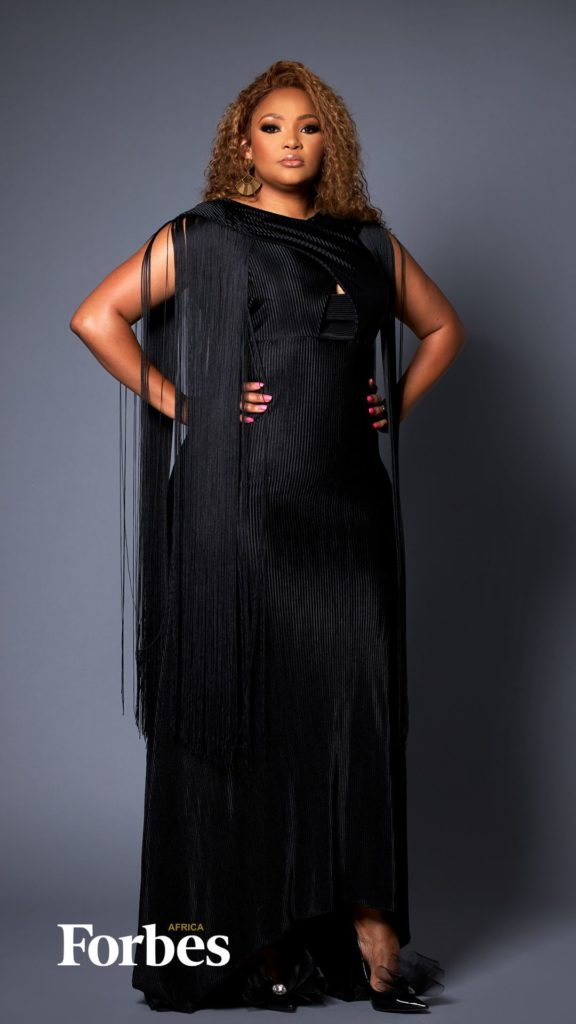
“Being a power woman means someone who is a pioneer but, at the same time, someone who is a force and also someone who brings light wherever she goes.”
If you ever find yourself with an internationally-acclaimed chef, just know that he or she will joke that they would like for you to first taste their food before adding salt. And then want you to know that this craft is an art and science come to life. As a food and nutrition scientist, chef Siba Mtongana is no different. She gained global recognition when her show Siba’s Table first aired on Food Network, capturing the essence of South African cuisine. Reportedly, more than 150 countries and 60 million homes in the US tune into Cooking Channel alone to watch her whip up her culinary specialties, proving how hungry the world is for African cuisine.
At the FORBES AFRICA photoshoot in Johannesburg in January, Mtongana offers more food for thought:
Q. How did your journey in the culinary world begin, and what inspired you?
A. My journey started when I was a very young girl in my mother’s kitchen, where I was so mesmerized by how my mother could turn simple ingredients into the most amazing dishes. She had a garden that my dad tended for her. My life was an interaction from the garden to the kitchen, which is really beautiful. I decided, against my parents’ wishes, to become a chef. At the time, there weren’t many people who were successful; I’m going to say specifically African black people who were successful in the food industry, especially as chefs. Therefore, my parents were very skeptical… but I do believe that I’ve created a template – because [of] my cooking show on Food Network, where I could say specifically to Africans, this is actually a career path you can take. I think my contribution to the food industry and culinary world was that I made it more relatable and easy for people to follow in my footsteps.
Q. Can you talk to us about a big career milestone?
A. I have been blessed with many career milestones but one comes to mind… I opened my first restaurant during Covid-19. SIBA – The Restaurant is a fine dining restaurant in Cape Town (at the Victoria & Alfred Waterfront) and is doing incredibly well. Last year alone, we won about 10 awards, locally and internationally. I often think to myself, should I not have done it at that time, would I have had the trajectory that I am on now? Maybe not, because the story might not have been as strong but you really have to have that inner gut feel and follow it.
Captain Irene Koki Mutungi – Kenya, 47
Commercial pilot and Africa’s first black female captain of a Boeing 787 Dreamliner
Industry: Aviation

“Reflecting on my career as a pioneer, I aspire to leave a legacy that inspires other women in aviation. I hope to be remembered as someone who broke barriers, paved the way for inclusivity and encouraged countless women to pursue their dreams fearlessly.”
A 2019 report by the University of Nebraska states that women only make up less than 10% of pilots, maintenance technicians, and airline executives globally. The report further elaborates that women remain significantly underrepresented in many areas of aviation. Breaking the literal glass ceiling is Captain Irene Koki Mutungi, Kenya Airways’ first female pilot and first female captain. As Africa’s first black woman to captain a Dreamliner, who was also recently appointed as Deputy Chief Pilot, Mutungi shares with FORBES AFRICA her career’s high points:
Q. Can you share a particularly challenging or memorable experience in your career and how it shaped you as a professional?
A: On my very first flight at Kenya Airways – it was a domestic flight – I was the co-pilot. It was not a very big plane – the capacity was about 54 passengers. As the passengers were boarding, they could say hello [to me]. They were either excited or quiet. One of the gentlemen who saw me shouted that he was not ‘a guinea pig’ and that he would not be flown by a woman.
The captain [at the time] asked him to apologize to me or he would have to disembark. The passenger had no choice but to apologize. After landing, he was so impressed he changed his tone and came to congratulate me… I have encountered stereotypes and biases, with some doubting my abilities based on gender. Access to mentorship was also limited [at the time] as I was the first so had to tread the waters myself in situations where it would have been apt to have a female mentor.
Q. How do you see the future of the aviation industry evolving and what role do you think women will play in shaping that future?
A. The future of aviation is poised for remarkable advancements, driven by technology and sustainability. The industry has made exponential growth, especially post-Covid, with the demand for travel. In shaping this future, women will play a crucial role by contributing diverse perspectives, fostering innovation and assuming leadership roles. We have good examples like KLM CEO Marjan Rintel and the recently-appointed Japan Airlines President Mitsuko Tottori already taking the reins. It is essential to encourage more women to enter the field, ensuring a dynamic and inclusive aviation landscape that reflects the talents and capabilities of both genders.
Kgothatso Montjane – South Africa, 38
Grand Slam Tennis Player
Industry: Sport
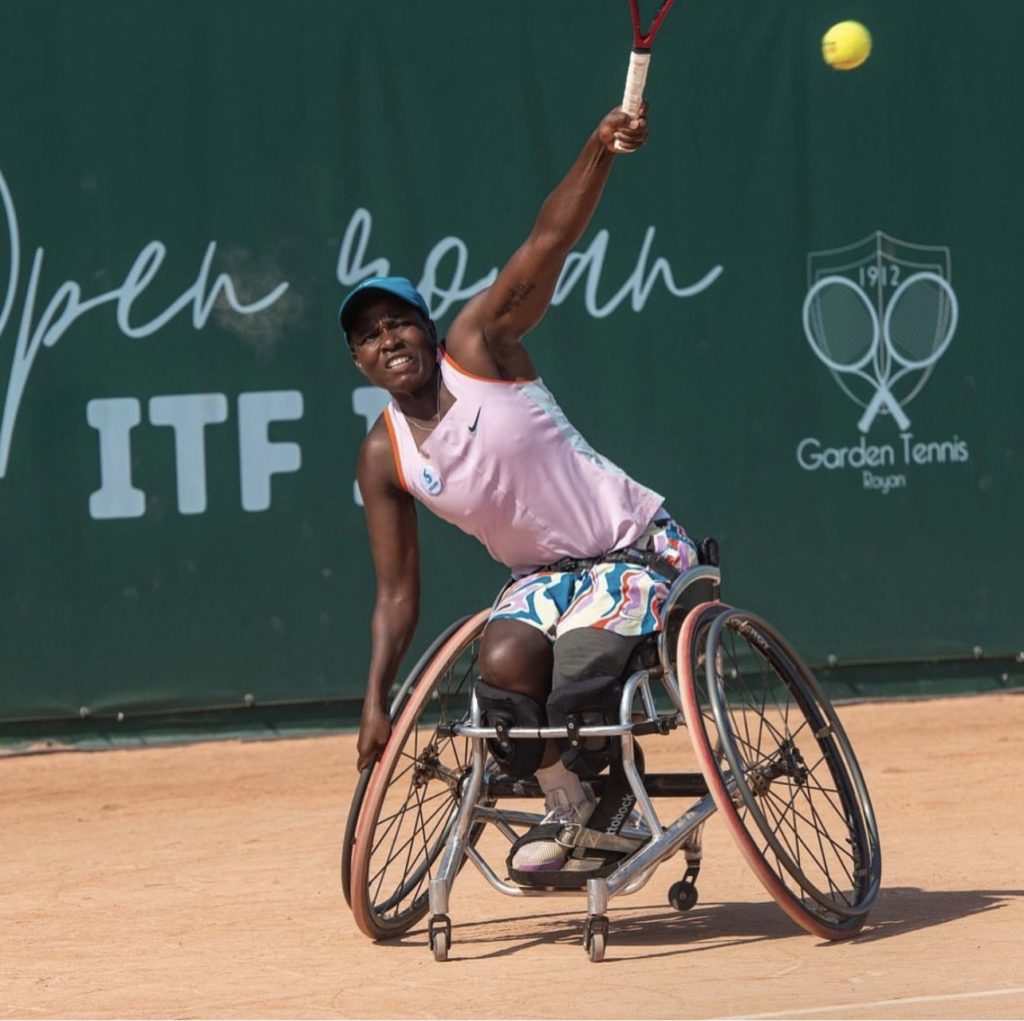
Embarking on her tennis career at 19, Kgothatso Montjane has achieved much, including SA Sports Woman of the Year with Disability in 2011, 2012, 2013, 2014 , 2015, 2019 and 2021. She also celebrated her second Grand Slam victory at the US Open in New York in September.
Speaking to FORBES AFRICA at the time, she said that she couldn’t believe it happened. In a quote that still resonates today, she added, “I just want people to know that disability doesn’t mean inability. It’s just a condition that limits you in a certain way… At the end of the day, we, people with disabilities – we are human; we are capable; we are talented.”
Proving that anything can be achieved through hard work and dedication, she was Gauteng Sports Personality of the year in 2019 and, it has been reported that her highest career ranking is 4th, which she achieved in 2022.
Odunayo Eweniyi – Nigeria, 30
Co-founder and COO, PiggyVest
Industry: Technology / Finance
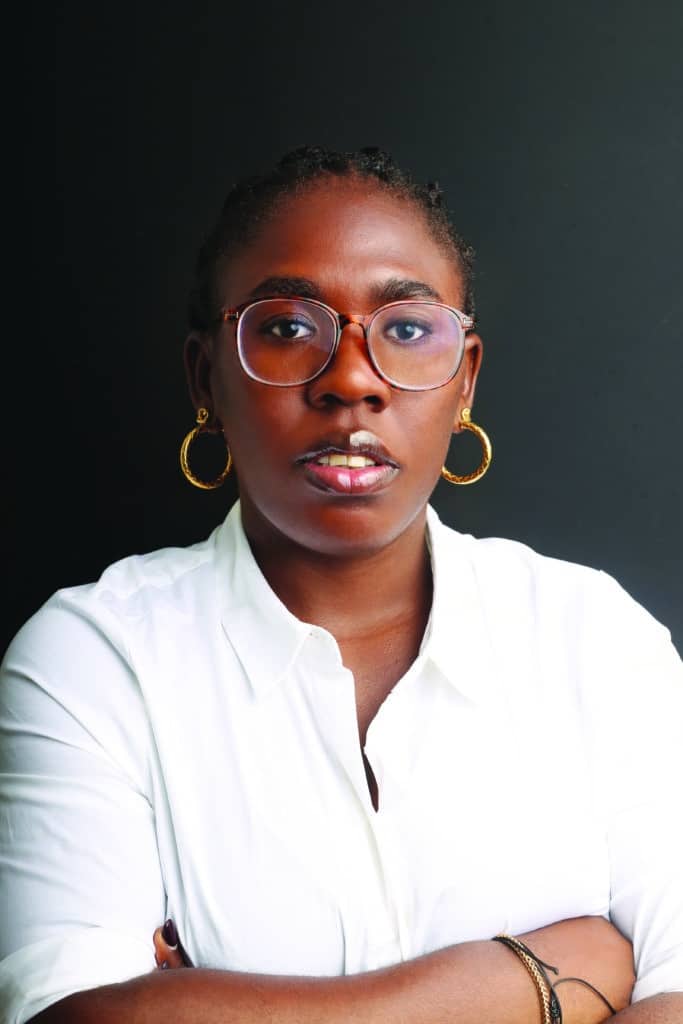
“Women who are currently in tech, whether you like it or not, you have a responsibility to kind of hold the door open for other women to walk into the space.”
Access to financial services has always been a great concern for Odunayo Eweniyi. A recent report from Boston Consulting Group, in collaboration with Elevandi, titled Driving Financial Inclusion in Africa indicates that four countries – South Africa, Kenya, Uganda and Ghana – are growing financial inclusion above the regional average. However, it further states that fintech ecosystems in other African countries are maturing and attracting more investment.
Originally, Eweniyi started this business more with her peers in mind.
“We didn’t decide right off the bat to go into finances,” she explains to FORBES AFRICA. “We were trying to solve a problem for our generation – millennials and Gen Z. And we built PiggyVest targeting that demographic. Obviously eight years on, it’s become this massive mainstream mass market product that targets everybody.”
PiggyVest is a Nigerian online platform that streamlines savings and investment processes. According to the company’s blog, the platform is currently assisting over 4.5 million customers in achieving their financial goals by helping them to save and invest with ease.
Being an entrepreneur, especially in Africa, is not easy. Many individuals can attest to this. And building a successful company that not only serves the underserved but also ensures one’s own personal growth can come with a plethora of unique challenges..
“I don’t think it’s compulsory that entrepreneurs try to be support systems for the entrepreneur, but I think it’s advisable,” she says. “I think that with more power comes more responsibility, and to whom much is given, much is expected. So even if you’re not able to cast yourself in a mentor role, it’s important that you hold some kind of responsibility to make the journey to entrepreneurship easier for the people who come behind you.”
Kim Engelbrecht – South Africa, 43
Emmy-nominated Actor
Industry: Entertainment
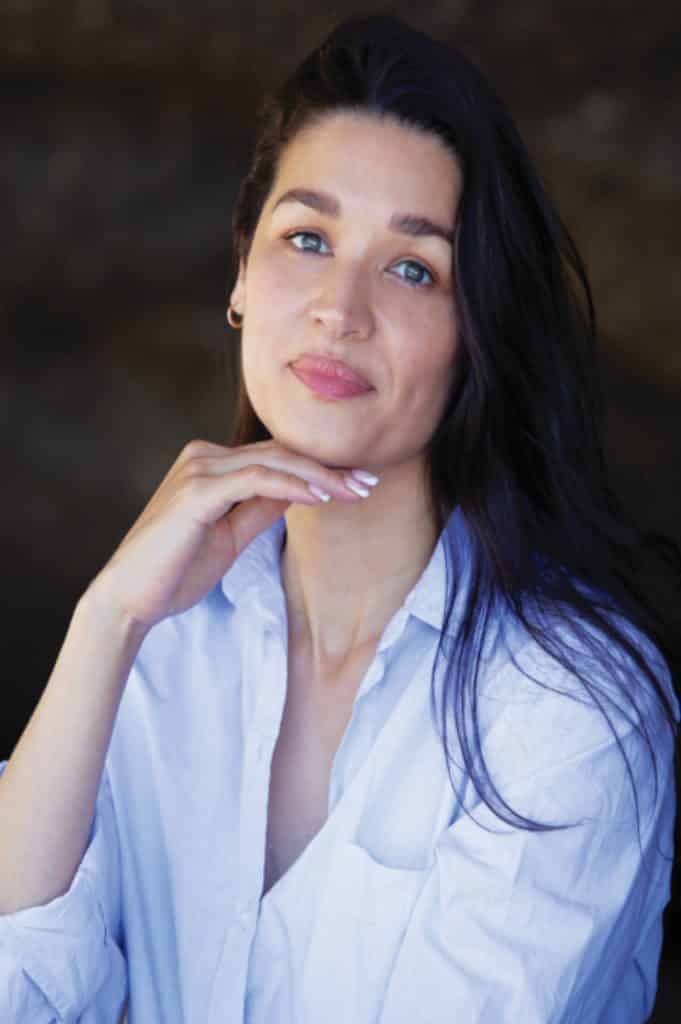
“If anybody asks me for advice: you should always be positive. You should always support the person. A person will make their decision but no negative advice is ever going to be beneficial to anybody.”
As Kim Engelbrecht begins her interview with FORBES AFRICA, you can already see her passion for her profession shine through. The Reyka actor relays just how much she enjoys playing “a really cool, female, complex character”.
“It’s a huge deal for me; for my personal acting journey. It is my first lead. I’ve done leads in film before but not in a TV series and not this kind of work schedule. It’s pretty intense but the other actors are so incredible and the teams are great. From the beginning, it was just the perfect people put together to make the show work and make it what it is.”
Following the success of the show, her local and international career, and her drive to keep doing what she loves, Engelbrecht shares that her ‘power mantra’ is centered around constantly challenging herself.
“For me, it’s about being the person that I think I’m not; constantly pushing myself, and being like ‘I can be the person that does international films; I can be an intellectual; I can be someone that does incredible accents,” she says. “I can be that girl’… just pushing myself into situations that are constantly making me feel really uncomfortable – I will test to see if I can; and I’m ok with the heartache that comes with it.”
When asked, ‘what’s next?’ she says: “What I want to do constantly changes. The landscape is changing; life is changing. What we deem as important, what we deem as necessary or a priority changes. For me, I’ve just recently gotten a UK management team – I’ll probably do a trip soon. I think that’s what my main focus now is; that’s a new avenue for me.”
“I think there is that thing where you’re either chasing or you’re enjoying, but the chase kind of never ends and I think everybody in this industry will attest to that. I’m not chasing money; I’m chasing an ability to see my dreams come true. That’s what I’m chasing. The chase is constant. You have to be ready again,” Engelbrecht adds.
Dr Tlaleng Mofokeng – South Africa, 41
Medical doctor, Author, United Nations’ Special Rapporteur on the Right to Health
Industry: Health / Social Impact
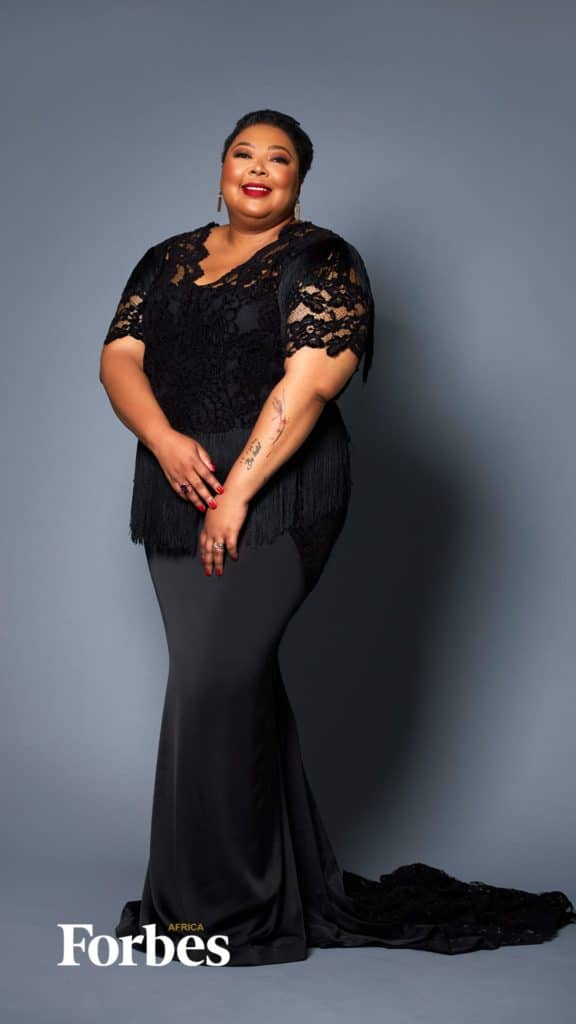
“I am a feminist, how can I not support my own liberation? It makes no sense not to be one, especially because [of] what keeps me back; the structural systemic issues that keep me back.”
Dr Tlaleng Mofokeng’s story is not one that kickstarted with a university degree, or when she started advocating for the sexual and reproductive health and mental health rights of all. In fact, the story that shaped Mofokeng, known as Dr T, had its beginnings in her childhood in QwaQwa, in the Free State province of South Africa during apartheid.
“[I] experienced some of the most exciting but also frustrating and scary times growing up [during] apartheid, but [as] an adult, [I also] experienced the wonder of a democratic South Africa. [I wanted to be become a doctor] after witnessing adults and neighbors around me injured in the protests [that happened], and I was there and helpful. I think, as a child, [I was] also inquisitive about [these] protests; I’m grateful that they never chased me away but incorporated me in a way that I was safe [and] could still participate.”
At the photoshoot for this feature, Mofokeng is anxious to get to a table where she can open her laptop to finish up some work, as she wears many hats. As a medical doctor, she specializes in advocating for women’s health with regards to their sexual health and relationship concerns. As the United Nations Human Rights Council Special Rapporteur, her work focuses on the rights of every individual to experience the highest attainable standards of physical and mental health. She is also an Adjunct Professor at the Georgetown University Law Center in Washington DC in the US.
“Would you consider yourself a power woman, Dr T?” we ask.
“A power woman is bold. And she is fearless, in that she gets to determine life for herself, she moves at her pace, and is not shy to say ‘I’m exhausted, can someone else take over?’ I accept that for this moment that power is being projected on to me. But I like to project power more than take it as an identity or something that I have to live up to because I’m only human and some days, I’m really not feeling so powerful.”
Dr Tiwa Savage – Nigeria, 43
Singer, Songwriter, Actor
Industry: Entertainment
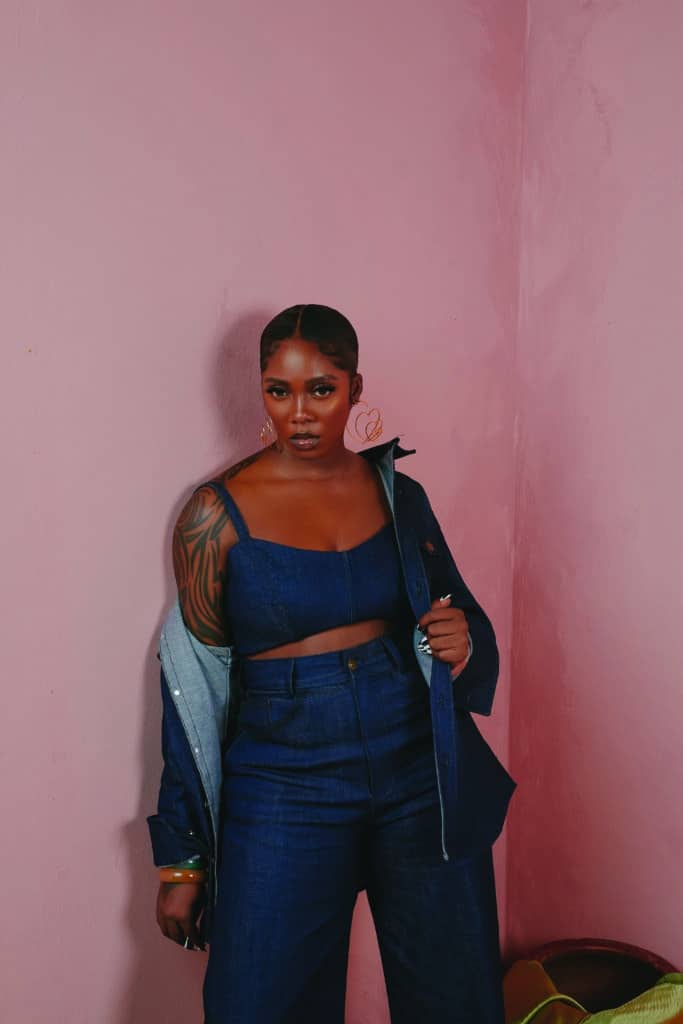
Tiwatope Omolara Savage, known professionally as Tiwa Savage, has etched herself into music lore. Following a string of awards, in 2022, she became the recipient of an honorary degree from the University of Kent and is soon set to make her debut in acting with Water & Garri, which is expected to be released this year.
“This has been over two years in the making and I must say this is probably one of the most adventurous, fulfilling things I’ve done,” Savage said on social media.
“I feel blessed and honored not only be making my debut as a lead actor, but to have also executively produced this film. I honestly can’t wait to take you guys along with me on this next phase of my life and art…. I’m just getting started.”
In an interview with FORBES AFRICA in 2022 about the continent’s music repertoire, she had said: “It’s so good to be African now. We are so proud of it and we’re shouting about it from the rooftops,” adding, “I really don’t know what the future would hold, I can’t tell but I would only hope that African music will and should become a stable genre.”
Flaviana Matata – Tanzania, 36
Model, Businesswoman and founder of Lavy Products
Industry: Fashion
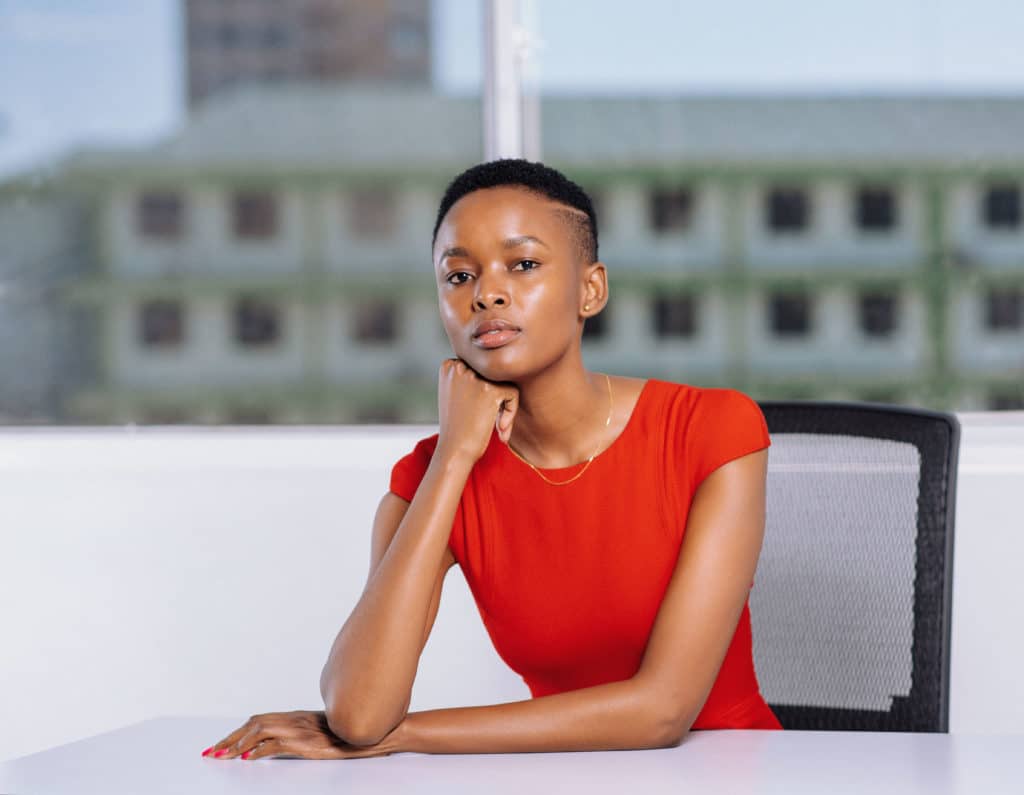
“A personal mantra I live by every day is to do my best but also to take a pause.”
Name a luxury brand (Tommy Hilfiger, Vivienne Westwood et al), and it’s likely that Flaviana Matata has either walked their runways or graced the pages of some of the world’s biggest magazines wearing them. Speaking to FORBES AFRICA from her home in Tanzania, Matata says jokingly that she should not be limited to highlighting only one milestone in her career. “I’ve done a lot. I’ve been in the industry for a while. So, it would be difficult and unfair, to be honest, to just keep it to one moment.”
Q. How do you incorporate and celebrate your Tanzanian heritage in your work, and why is it important to you?
A. Tanzania is what I know… If there is one thing I’m scared of, it’s being a stranger in my own country; because after everything else that I’m doing, home is where my heart is. So, whenever I go, I take Tanzania with me.
Q. In what ways do you think your success is contributing to changing the perceptions and stereotypes about African women in the global fashion industry?
A. When you’re coming from Africa, when they’re telling your story, they want to just tell the sad story. I do not have that sad story. I was born and raised in a middle class family; my dad took me to good, private Catholic schools. [The West] just wants to portray this image [that] ‘you’re in need all the time’. I refused that from the beginning. I do not come from poverty. But yes, there’s poverty in Tanzania. There’s also poverty in the US just like everywhere else, not as bad, but still… Even when I started the nailcare line, when publications wanted to tell my story, they wanted to say that I started a nailcare brand for women of color. No, I started my line for any woman who loves nail polish. They always want to put you in a box and I’ve refused that.
Q. Beyond modeling, you’ve ventured into entrepreneurship. You are the founder of a line of non-toxic, cruelty-free nail polish. What advice do you have for women who aspire to become entrepreneurs?
A. It’s about resolving problems; making money itself is not enough. What we do is we teach girls and young women how to do nails. And now some of them have started their own nail salons, some of them are employed, and some of them work under my company as technicians for our mobile clinics. It’s about asking what are you contributing to society and it doesn’t have to be in a big way. We know that big corporations and other big brands tackle the business first and then they get to the ‘give-back’ components later. But for us, we started as a social enterprise.
Nomcebo Zikode – South Africa, 38
Grammy award-winning singer and songwriter
Industry: Entertainment
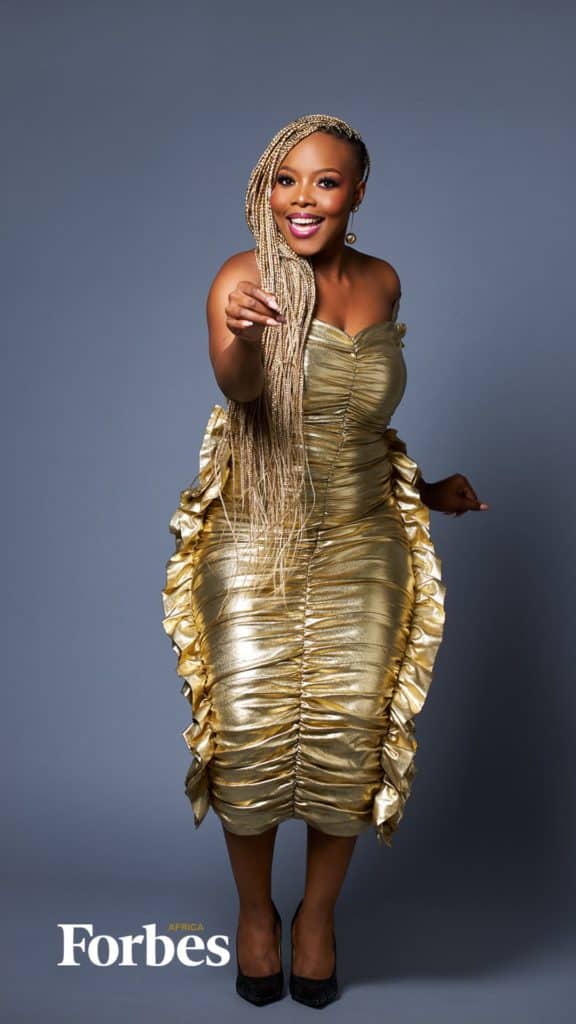
“I wouldn’t say a ‘power woman’ is fearless because some way, somehow, I do get that fear. But I can say she is a strong woman even though problems approach. She will always be strong and stand up for herself; she has perseverance.”
In 2023, Nomcebo Zikode was celebrated across Africa, but especially in her home country South Africa after she brought home her first Grammy award with two-time Grammy award-winning flautist, Wouter Kellerman and singer and producer, Zakes Bantwini for their song Bayethe. It was a win she did not think would happen. At the FORBES AFRICA power women photoshoot, Zikode walks in with a big smile, ready to reflect on the journey that led to that moment.
“I knew that I wanted to be on TV or I wanted to be a singer,” Zikode says. “Becoming an actress was the second thing but being a singer was the first thing, so I’m living my dream. I’m really so happy to be recognized, not only in South Africa but abroad, and seeing people loving your work as they do, even though there was a point whereby I was about to give up because I [was] looking at my age. I was over 30 and this music thing was not happening, so I am really grateful to God.”
Also successful as the founder of record label, Emazulwini Productions, Zikode wants to inspire the youth, especially those from disadvantaged backgrounds.
“Personally, it was never about changing my life,” Zikode explains. “It’s about showing another child who’s currently sitting at home, watching me win a Grammy so they can see that Nomcebo made it possible to achieve her goals, so that where they are sitting – whether they’re coming from a rural area or from a poor family – they know that it is possible for them!”
Zikode’s admission of wanting to give up – this was before her hit song Jerusalema topped charts across the globe – is not unique to her. To the women who feel that their careers have stunted, Zikode offers the best advice: “Just keep going and respect your craft. You never know when your time is coming.”
Loading...
